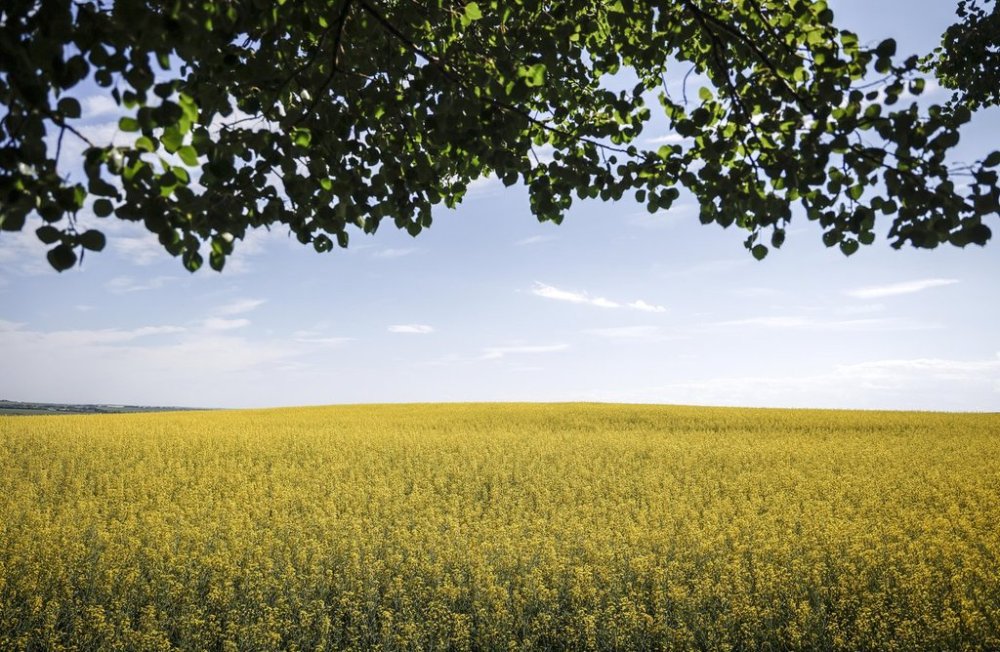‘Between two elephants’: Canadian farmers feeling China tariffs, worry about U.S.
Advertisement
Read this article for free:
or
Already have an account? Log in here »
To continue reading, please subscribe:
Monthly Digital Subscription
$0 for the first 4 weeks*
- Enjoy unlimited reading on winnipegfreepress.com
- Read the E-Edition, our digital replica newspaper
- Access News Break, our award-winning app
- Play interactive puzzles
*No charge for 4 weeks then price increases to the regular rate of $19.95 plus GST every four weeks. Offer available to new and qualified returning subscribers only. Cancel any time.
Monthly Digital Subscription
$4.99/week*
- Enjoy unlimited reading on winnipegfreepress.com
- Read the E-Edition, our digital replica newspaper
- Access News Break, our award-winning app
- Play interactive puzzles
*Billed as $19.95 plus GST every four weeks. Cancel any time.
To continue reading, please subscribe:
Add Free Press access to your Brandon Sun subscription for only an additional
$1 for the first 4 weeks*
*Your next subscription payment will increase by $1.00 and you will be charged $16.99 plus GST for four weeks. After four weeks, your payment will increase to $23.99 plus GST every four weeks.
Read unlimited articles for free today:
or
Already have an account? Log in here »
Hey there, time traveller!
This article was published 10/03/2025 (302 days ago), so information in it may no longer be current.
REGINA – Prairie farmers say planned Chinese retaliatory tariffs on Canadian agricultural products are causing loads of uncertainty, while threats of U.S. levies and industry issues have created further problems.
Bill Prybylski, president of the Agricultural Producers Association of Saskatchewan, says China’s 100 per cent tariffs on canola oil, meal and peas scheduled for next week are already being felt, as markets have taken a hit.
“For anybody that’s forced to sell canola in the near future to pay for input costs going into the spring, it’s going to hurt,” Prybylski, who farms near Yorkton, northeast of Regina, said Monday.

“Almost 10 per cent of the value of canola has just evaporated overnight.”
China imposed the measures in response to Canada slapping the country with duties in the fall against Chinese-made electric vehicles, along with steel and aluminum products.
Beijing is also planning 25 per cent tariffs on pork and aquatic products.
Andre Harpe, chair of the Alberta Canola Producers Commission, said companies have already stopped buying canola.
Harpe, who farms near Grande Prairie, northwest of Edmonton, said tariff threats from the U.S. are making the situation worse.
“It’s kind of like sitting between two elephants right now,” he said, referring to China and the U.S.
U.S. President Donald Trump introduced 25 per cent tariffs on Canadian goods last week then paused some until April 2.
The temporary relief applies to goods that meet the rules-of-origin requirements under the Canada-U.S.-Mexico Agreement. It also includes lowering levies on potash to 10 per cent.
A spokesperson with the Canola Council of Canada said the crop is currently not being levied by the U.S.
The organization said total exports of canola to China was almost $5 billion last year, with $938.6 million being oil and meal from the crop. China’s tariff does not apply to canola seed.
Pulse Canada, the industry group that represents pea producers, said $306 million in yellow peas was exported to China last year.
Canola, wheat and pulse crops are predominantly grown on the Prairies, with Saskatchewan making up the most farm area in Canada.
Dean Roberts, chair of SaskOilseeds, said farmers plan their seeding in advance. Any quick changes to those plans could turn out to be the wrong decision, he added.
“I’m still sitting here staring at a spreadsheet kind of questioning where I go from here,” said Roberts, who farms near Coleville in west-central Saskatchewan.
Kyle Larkin, executive director of Grain Growers of Canada, said half of Canadian grain exports go to the U.S. and China.
“Losing access or facing exorbitant tariffs in both markets at once is a threat farmers cannot afford to absorb,” he said in a statement.
“We’re calling on the (federal) government to take immediate action — first, to engage with China to find a resolution and, second, to establish a compensation plan to cover the financial losses farmers are facing.”
Prybylski said the industry is facing other headwinds.
A pause of a biodiesel plant in Regina, which would have used canola meal, hinders the ability of producers to diversity their markets, he said.
The federal government has also approved the acquisition of Viterra Ltd., which has its Canadian headquarters in Regina, by American agriculture company Bunge Ltd.
Prybylski said the acquisition raises fears of reduced competition, which could depress crop prices.
“We will certainly be keeping an eye on that and make sure that farmers aren’t being harmed financially or otherwise,” he said.
This report by The Canadian Press was first published March 10, 2025.


